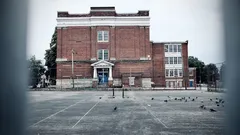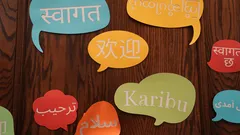234
6
5 minutes
Suggested Articles

First-generation Ivy Leaguers triumph over unique college challenges
Discover key insights, life hacks, and data-driven tips for first-generation college students thriving in prestigious U.S. universities. Find practical strategies, unique challenges, and fresh perspectives essential for student success.

Civics lessons give students a lifeline in times of community crisis
Civic Education

Teachers in Los Angeles empower students with real-life civics during crisis
Civic Education

Patriotic education reshapes American classrooms as the nation nears 250 years
Civic Education

Homeschool parents embrace freedom as lawmakers spark a new regulation debate
News & Updates

Educators and families see sweeping changes as the Supreme Court reshapes school policy
Civic Education

Cellphone bans in schools spark sharper focus and real student connection
News & Updates

Inside Detroit’s fight to shape public schools with new board appointments
Volunteer

Americans build empathy and strengthen democracy through language learning
Civic Education

High schoolers drive change as schools empower youth civic voices
Civic Education

The Unseen Shift: Student Knowledge from 1982 to 2025 Reveals Surprises
Civic Education

First-generation Ivy Leaguers triumph over unique college challenges
Hiring

Americans brace for possible Social Security cuts that reshape retirement
News & Updates

Why this Florida data leak changes how we think about privacy
News & Updates

Build your own AI chatbot and unlock hands-on tech superpowers
Resources & Tools

How to outsmart hidden medical expenses in your golden years
Civic Education

California workers secure jobs this summer with new 2025 laws
Hiring
 Love Women Vibes
Love Women Vibes

Comments